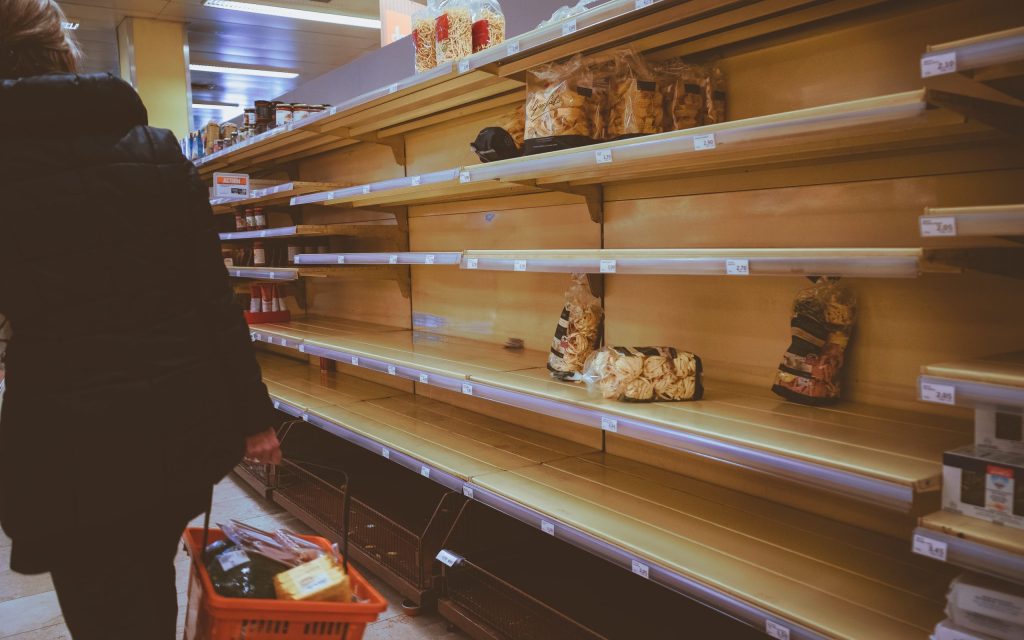 Subscribers Only
People
Subscribers Only
People 
During the coronavirus pandemic, the priority for people with sight loss has been getting groceries. Ansley Workman, Director of RNIB Cymru, outlines the challenges and some solutions.
The coronavirus pandemic has thrown a spanner in the works of organisations across the country. But there is a silver lining.
It has forced us at RNIB Cymru to rapidly adapt to new ways of working, reflecting the changing priorities and needs of our community. With this has come successes, failures and important insight that will stick with us long after the pandemic is over.
Community priorities
RNIB quickly started to collect daily real-time intelligence from the blind and partially sighted community, which informed our priorities and decisions. This insight comes from our Helpline, social media monitoring, wider sector intelligence and survey information, and from wellbeing calls made to the community.
Without this live intelligence, we could easily have made assumptions about what we believed should be our priorities. We assumed that many people would be worrying about the impact of self-isolation, reduced support networks, and maintaining emotional wellbeing. However, it became clear that the major issue for many was in fact access to groceries.
Identifying the problem
Many blind and partially sighted people have found it difficult to access supermarkets during lockdown due to new layouts and one-way systems, staying two metres apart, locating or using card machines and not being able to recognise different products. These difficulties are further compounded by not being able to drive to supermarkets and the reduction in public transport.
Blind and partially sighted people often don’t “look blind”. Some people experienced a lack of understanding from fellow customers and supermarket staff for not being able to follow the new rules.
Additionally, many older people with sight loss are not online so cannot use online shopping. Those who do use online shopping found that delivery slots were booked solid for weeks in advance and that they were not considered a priority group for access slots.
Successes and struggles
Access to shopping became our priority campaign. UK-wide we worked with other sight loss sector charities on a petition and pressed the four national governments and supermarkets to ensure that people with sight loss were considered a priority group to access online shopping. We worked with our community to ensure their voices were heard.
We experienced some success after the initial scramble to pull the campaign together.
- As an organisation, we have cut through a lot of internal red tape. We are working more intuitively with teams across the UK and learning from each other, leading to faster results.
- We achieved widespread media coverage in Wales and across the four nations with blind and partially sighted people sharing their experiences.
- We have raised the issue several times with the Government and within the Senedd.
- We have learned much about our community.
- We have learned to be agile and confident in making decisions that reflect our core organisational values.
To date, however, there has been no Welsh Government intervention on the prioritisation of customers with sight loss. As a result, we have broadened our scope. We now work with supermarkets UK-wide to develop guidance and support them to understand the needs of their customers. We have had positive responses from some supermarkets, and will continue to press this with other retailers.
Striking the right balance
Our research has shown that the lack of public understanding of sight loss is the biggest barrier to blind and partially sighted people leading independent lives. The pandemic has further evidenced that society still does not recognise or understand the challenges that people with sight loss experience every day. But it has also revealed a great willingness among the general public to help others through this crisis.
Most importantly, the pandemic has emphasised the need to balance rapid reactivity with a cautious, considered approach. Had we not waited to hear from the community themselves, we might have forged ahead with a campaign that held little relevance to those we represent.
Timeliness is essential but so is challenging initial assumptions and making informed decisions. The issues that matter most in a crisis may not be the most immediately obvious.
Ansley Workman is Director of RNIB Cymru


